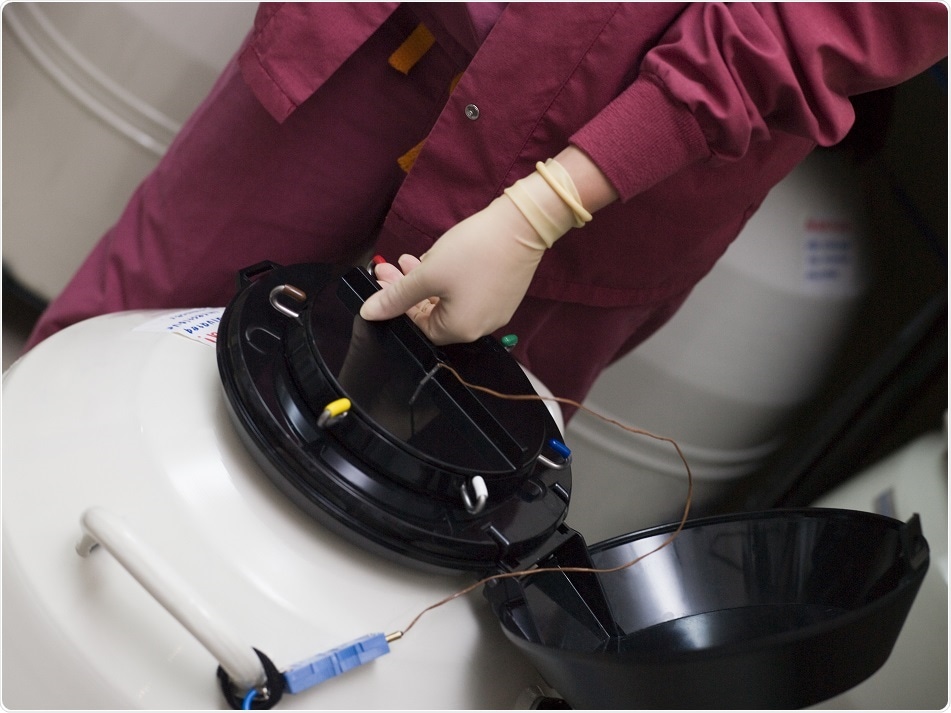Women who use frozen embryos for in vitro fertilization (IVF) have the same chance of ongoing pregnancy and giving birth as those who have fresh embryos implanted, say researchers.

Credit: Monkey Business Images/ Shutterstock.com
In a study of almost 800 women with infertility unrelated to polycystic ovarian syndrome (PCOS), ongoing pregnancy and live birth rates were the same between women who underwent IVF using frozen embryos and those who did so using fresh embryos.
Frozen embryo techniques are growing in popularity in fertility clinics worldwide. This is one of the reasons why our research is important for fertility clinicians and researchers, and of course couples who are hoping to have a child," says lead author of the study Lan Vuong (University of Medicine and Pharmacy at Ho Chi Minh City).
Research has previously indicated that women who are infertile as a result of PCOS are significantly more likely to have a live birth if they have frozen embryos implanted, but this study suggests this is not the case for women with infertility unrelated to PCOS.
Our key finding is that freezing embryos for IVF is not harming a couple's chances of having a baby. After the first fresh embryo transfer, it will be possible to freeze the remaining embryos and transfer them one by one, which is safe and effective."
Ben Mol, Robinson Research Institute, University of Adelaide
For the study, women were given one cycle of IVF where either frozen or fresh embryos were implanted. In the fresh embryo group, ongoing pregnancy occurred in 35% of the women and in the frozen embryo group, ongoing pregnancy occurred in 36%. The corresponding figures for live birth rates were 32% and 34%.
Mol warns that although many clinics are moving away from using fresh embryo transfers for IVF, the freezing process does make IVF more expensive, despite not resulting in higher rates of live births: "Couples concerned about such unnecessary costs of freezing all embryos do not need to go down that path, and will still have the same live birth success rate.”
Vuong added that the results of the current study are specific to a common freezing method called Cryotech vitrification, so they may not apply to all current embryo freezing techniques: “Further research will be needed to compare pregnancy outcomes and live birth rates from other embryo freezing techniques."